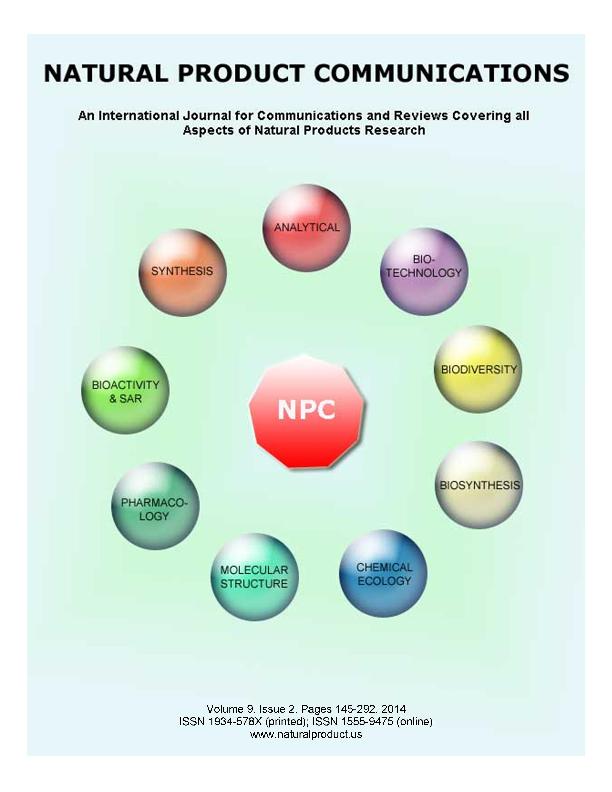Artículo
Nutritional and functional properties of aqueous and hydroalcoholic extracts from Argentinean propolis
Danert, Fátima Carolina ; Zampini, Iris Catiana
; Zampini, Iris Catiana ; Ordóñez, Roxana Mabel
; Ordóñez, Roxana Mabel ; Maldonado, Luis; Bedascarrasbure, Enrique Luciano; Isla, Maria Ines
; Maldonado, Luis; Bedascarrasbure, Enrique Luciano; Isla, Maria Ines
 ; Zampini, Iris Catiana
; Zampini, Iris Catiana ; Ordóñez, Roxana Mabel
; Ordóñez, Roxana Mabel ; Maldonado, Luis; Bedascarrasbure, Enrique Luciano; Isla, Maria Ines
; Maldonado, Luis; Bedascarrasbure, Enrique Luciano; Isla, Maria Ines
Fecha de publicación:
01/2014
Editorial:
Natural Products
Revista:
Natural Product Communications
ISSN:
1934-578X
Idioma:
Inglés
Tipo de recurso:
Artículo publicado
Clasificación temática:
Resumen
Bee propolis is a natural product extensively used as an ingredient in functional foods in amounts that may confer health benefits. The aim of this study was to investigate the nutritional and functional properties (antioxidant activity) of aqueous and ethanolic extracts of propolis samples from Santiago del Estero province, northern Argentina. All propolis extracts contained macronutrients (glucose, fructose, sucrose and proteins), micronutrients (Na, K, Ca, P and Mg) and trace elements (Fe). Spectrophotometric, TLC and HPLC-DAD analyses showed the presence of several phenolic, flavonoid and non-flavonoid compounds, but in all cases the flavonoids prevailed. The PCA of polyphenolic content provided a clear separation of propolis in Group 1 (SE1, 2, 3, 4 and 7) and Group 2 (SE5 and 6) associated with phenolic compound content and collection regions. Two compounds, pinocembrin and chrysin, which could be used as chemical markers of Santiago del Estero propolis, were identified in all samples. Propolis samples extracted with water presented better radical scavenging ability than ethanolic extracts, independent of the antioxidant method (scavenging activity of ABTS.+ and Beta-carotene bleaching test). Such results correlated closely with the levels of total phenols and flavonoids in samples. The results justify the use of Argentine propolis as a functional dietary supplement.
Palabras clave:
Argentine Propolis
,
Macronutrients
,
Micronutrients
,
Functional Compounds
Archivos asociados
Licencia
Identificadores
Colecciones
Articulos(INQUINOA)
Articulos de INST.DE QUIMICA DEL NOROESTE
Articulos de INST.DE QUIMICA DEL NOROESTE
Citación
Danert, Fátima Carolina; Zampini, Iris Catiana; Ordóñez, Roxana Mabel; Maldonado, Luis; Bedascarrasbure, Enrique Luciano; et al.; Nutritional and functional properties of aqueous and hydroalcoholic extracts from Argentinean propolis; Natural Products; Natural Product Communications; 9; 1-2014; 167-170
Compartir



